Accelerating SIEM Migrations With the SPL to PySpark Transpiler

In this blog post, we introduce transpiler, a Databricks Labs open-source project that automates the translation of Splunk Search Processing Language (SPL) queries into scalable PySpark dataframe operations. This tool was developed in partnership with a large financial services customer to accelerate the migration of cybersecurity workloads into Databricks.
SPL is a query language used in Splunk for searching, filtering, and transforming log data. Since Splunk is a popular Security Information Event Management (SIEM) and logs management platform, SPL is widely used for security and IT use cases such as alerting and threat hunting. Over time, organizations can accumulate several hundred use cases developed in SPL, and migrating these queries to other platforms is often manual and error-prone.
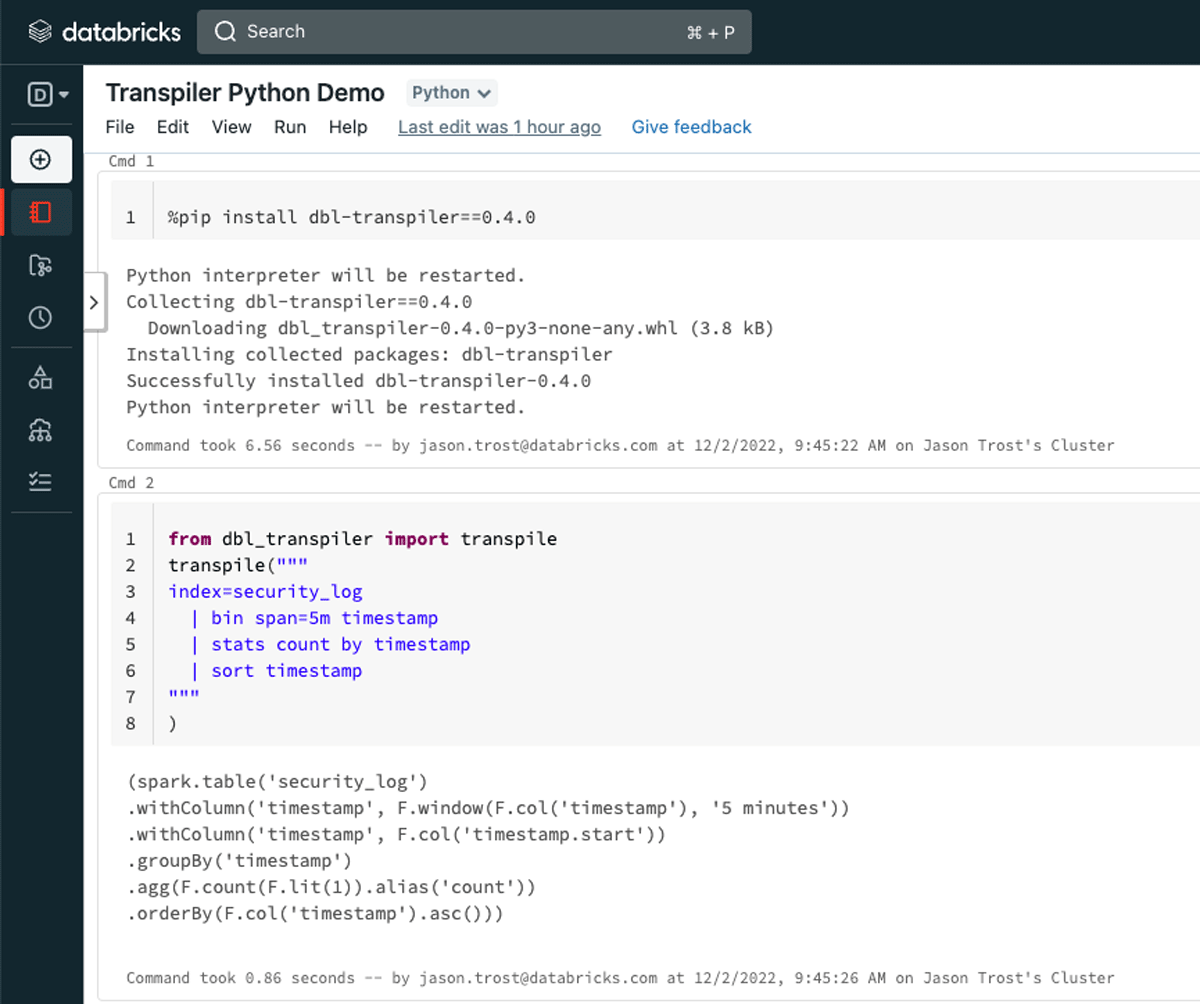
We developed a transpiler to automate and speed up this process. It transforms a significant subset of the customer's most commonly used SPL commands into their PySpark structured streaming equivalent python code. This provides the following benefits:
- Accelerate migration to Databricks - SPL queries are reliably and automatically converted to PySpark. This cross-compiler can cut migration time from months to weeks or even days.
- Education - It's also possible to use this tooling to teach PySpark equivalents to SIEM practitioners to accelerate their time-to-comfort level with Databricks Lakehouse foundations.
- Cost savings and scalability - Lakehouse is especially useful for historical data analysis where only shallow history of records would be kept on SIEM-based architecture. Translating SPL queries into Spark operations enables running these queries on much larger historical datasets and provides opportunities for applying more advanced analytic techniques such as anomaly detection and machine learning that scale very well in Databricks.
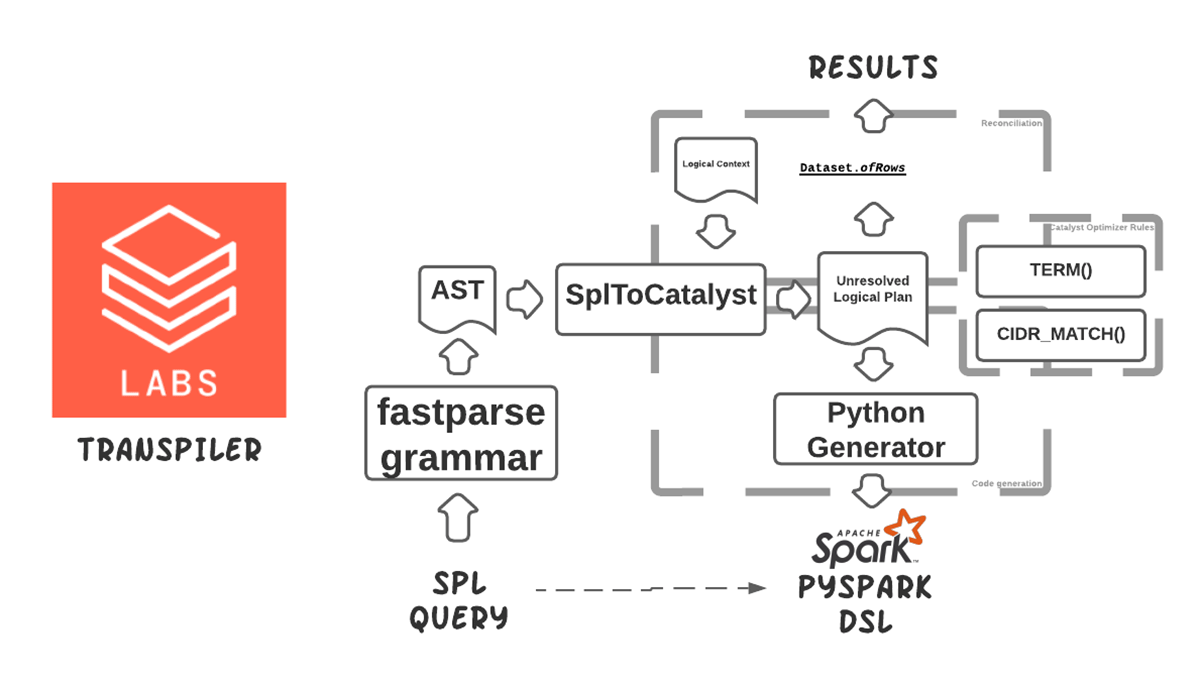
For more information about how the transpiler works and its usage, see these two presentations at the DATA+AI Summit 2022.
- Cutting the Edge in Fighting Cybercrime: Reverse-Engineering a Search Language to Cross-Compile to PySpark at DATA+AI Summit 2022
- Accidentally Building a Petabyte-Scale Cybersecurity Data Mesh in Azure With Delta Lake at DATA+AI Summit 2022
Getting Started
Below are the steps required to try out the transpiler. See the README at https://github.com/databrickslabs/transpiler for more details and examples. To use the transpiler, please create a Databricks Cluster with DBR 11.3 LTS. Once the cluster is created, navigate to Libraries tab and click on Install new, pick Maven, in coordinates field please enter com.databricks.labs:transpiler:0.4.0, and click Install:
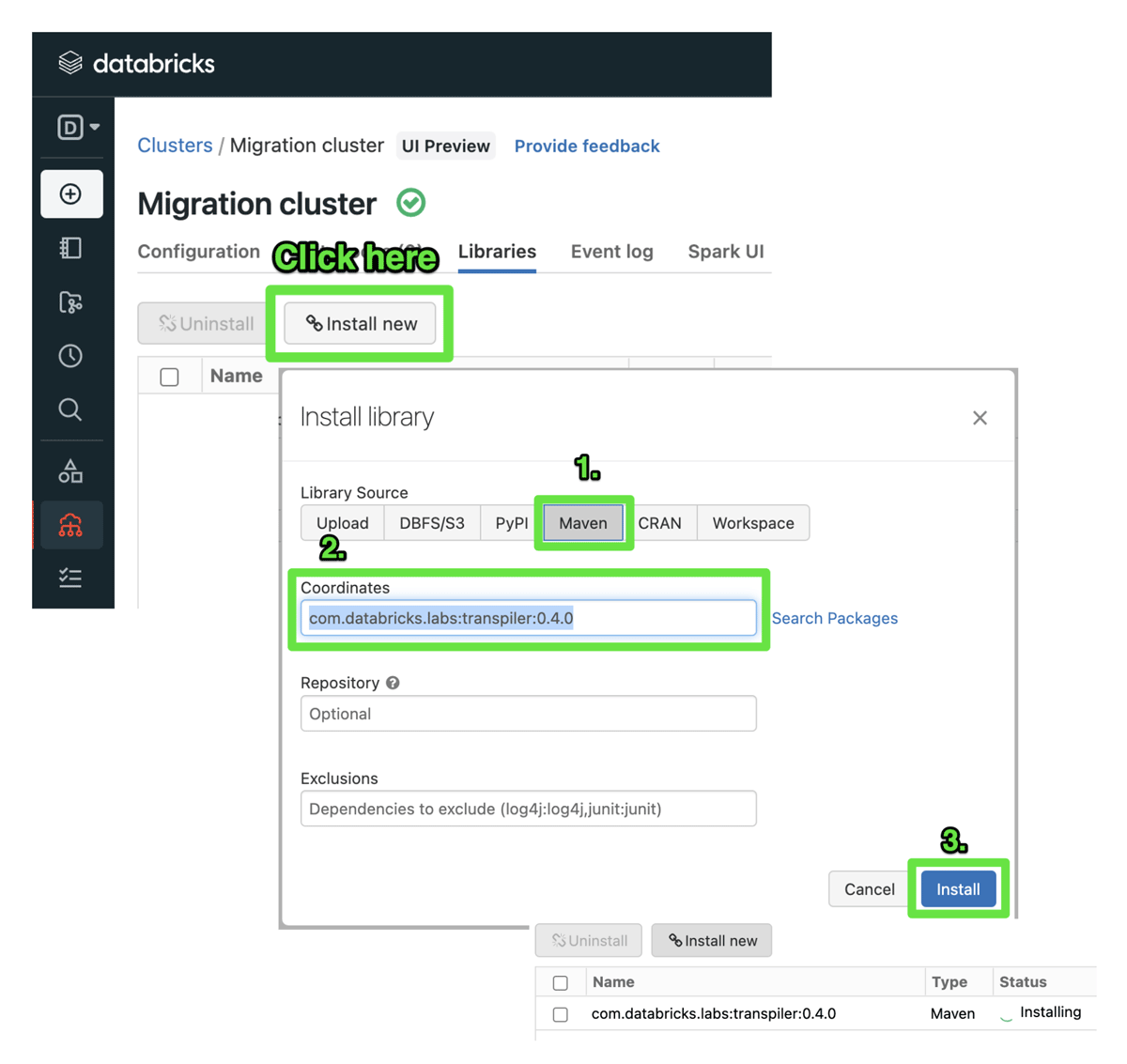
Once installation is done, you can use the toPython method from com.databricks.labs.transpiler.spl.Transpiler Scala object:
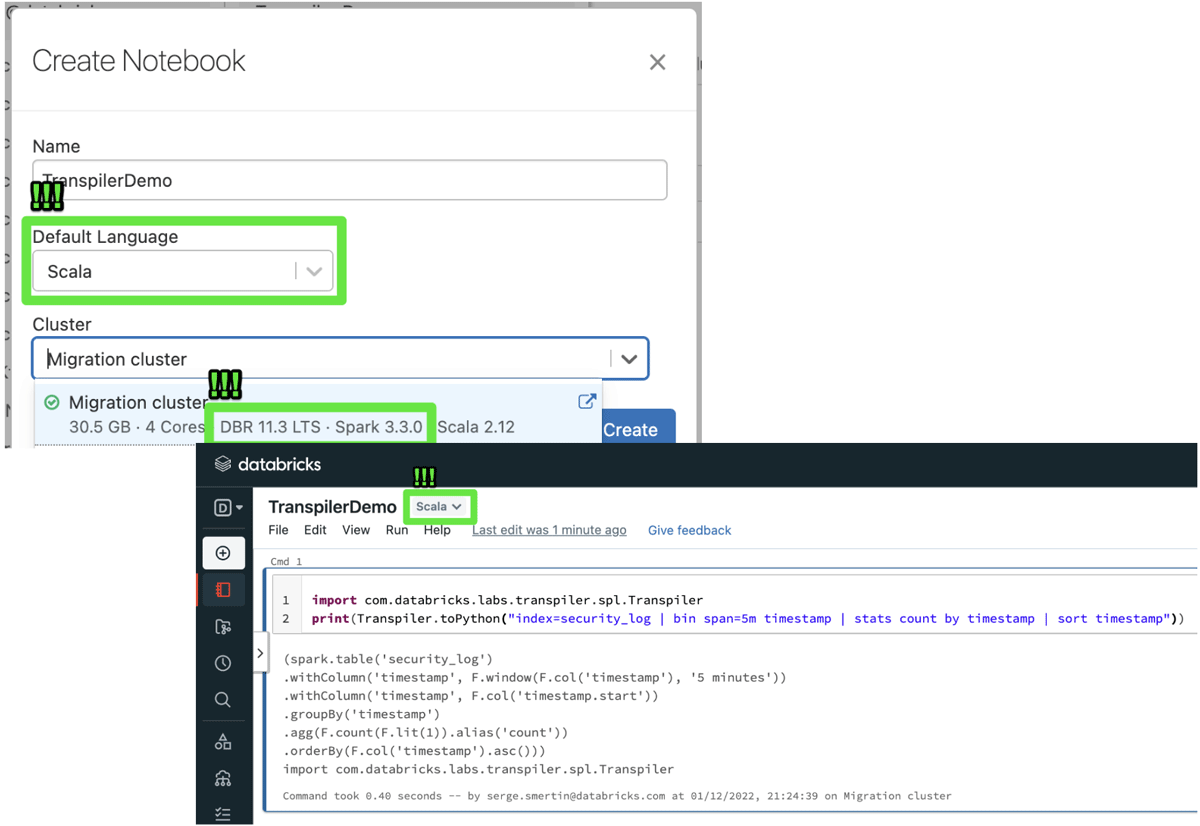
Alternatively, Run the following command to generate PySpark code using python. The python package is available through PyPi.
Language support
There's basic support for many common commands such as addtotals, bin, collect, convert, dedup, eval, eventstats, fields, fillnull, format, head, inputlookup, join, lookup, makeresults, map, multisearch, mvcombine, mvexpand, regex, rename, return, rex, search, sort, stats, streamstats, table, where.
There's also partial support for functions like auto(), cidr_match(), coalesce(), count(), ctime(), earliest(), if(), isnotnull(), latest(), len(), lower(), max(), memk(), min(), mvappend(), mvcount(), mvfilter(), mvindex(), none(), null(), num(), replace(), rmcomma(), rmunit(), round(), strftime(), substr(), sum(), term(), values().
Further work
As ever our efforts are in pragmatic response to a demand. If you would like to see further command conversions please create a GitHub issue or an existing issue!
Never miss a Databricks post
Sign up
What's next?
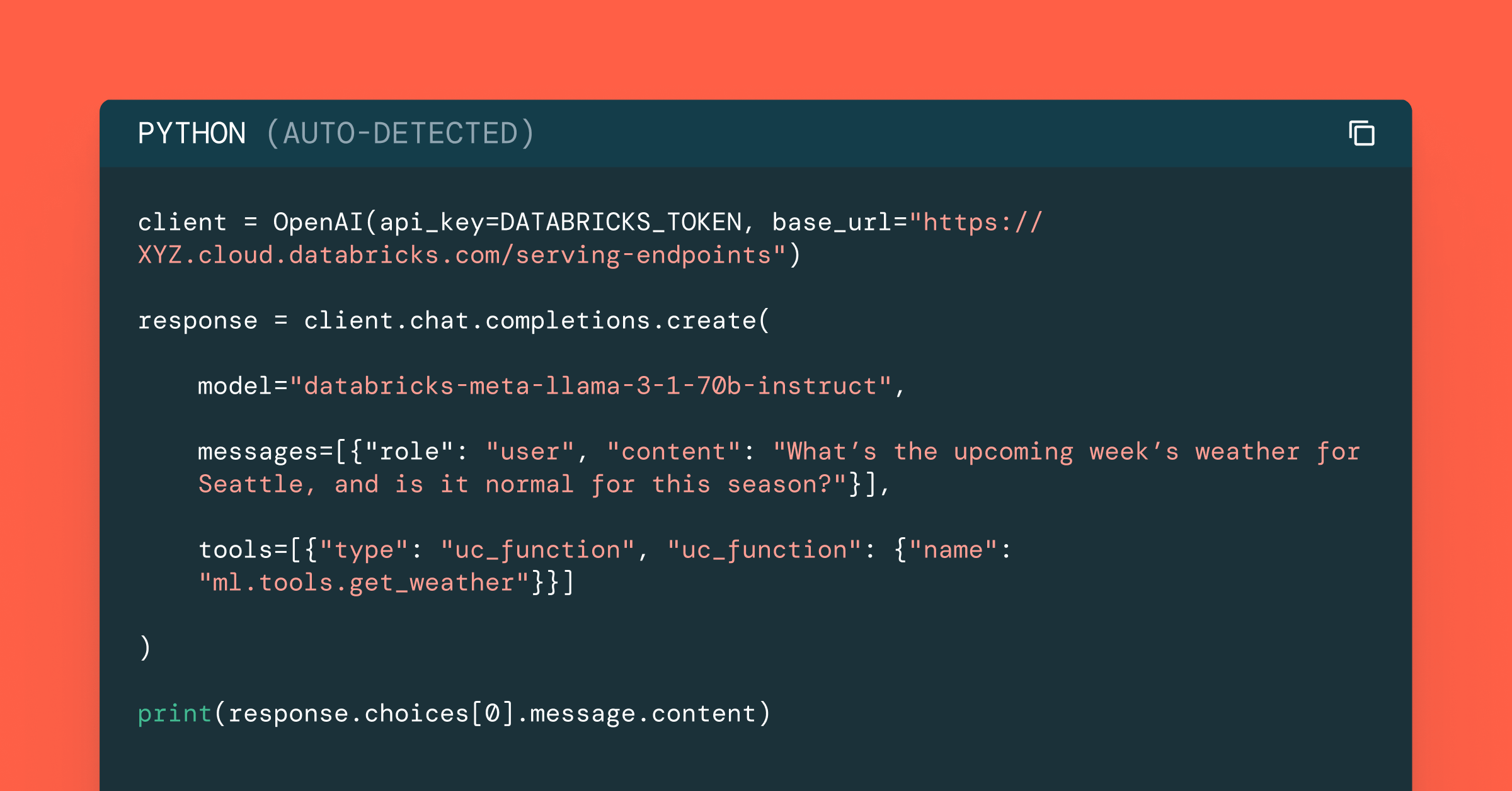
Data Science and ML
October 1, 2024/5 min read
Build Compound AI Systems Faster with Databricks Mosaic AI

Healthcare & Life Sciences
November 14, 2024/2 min read